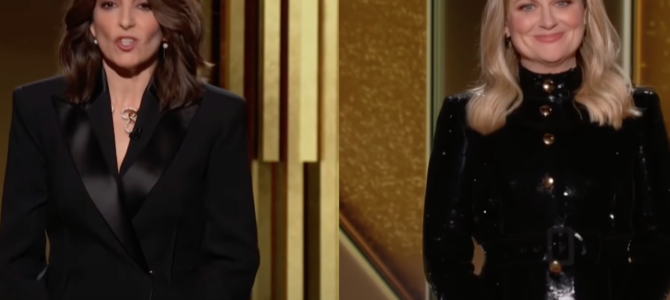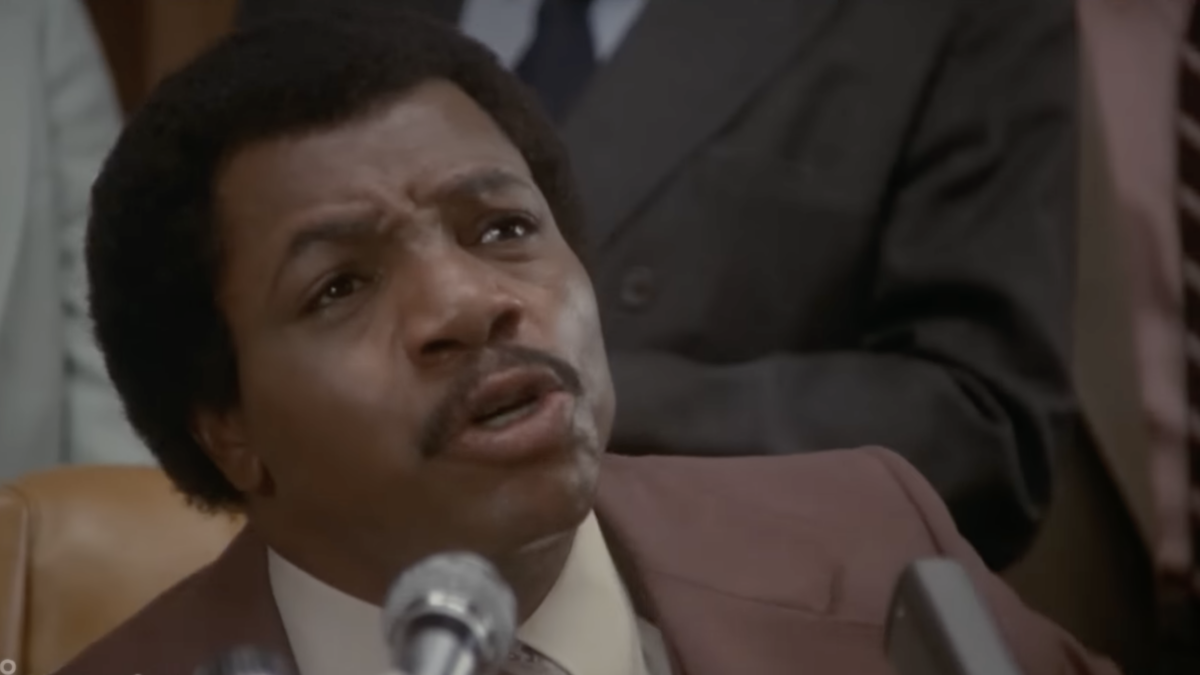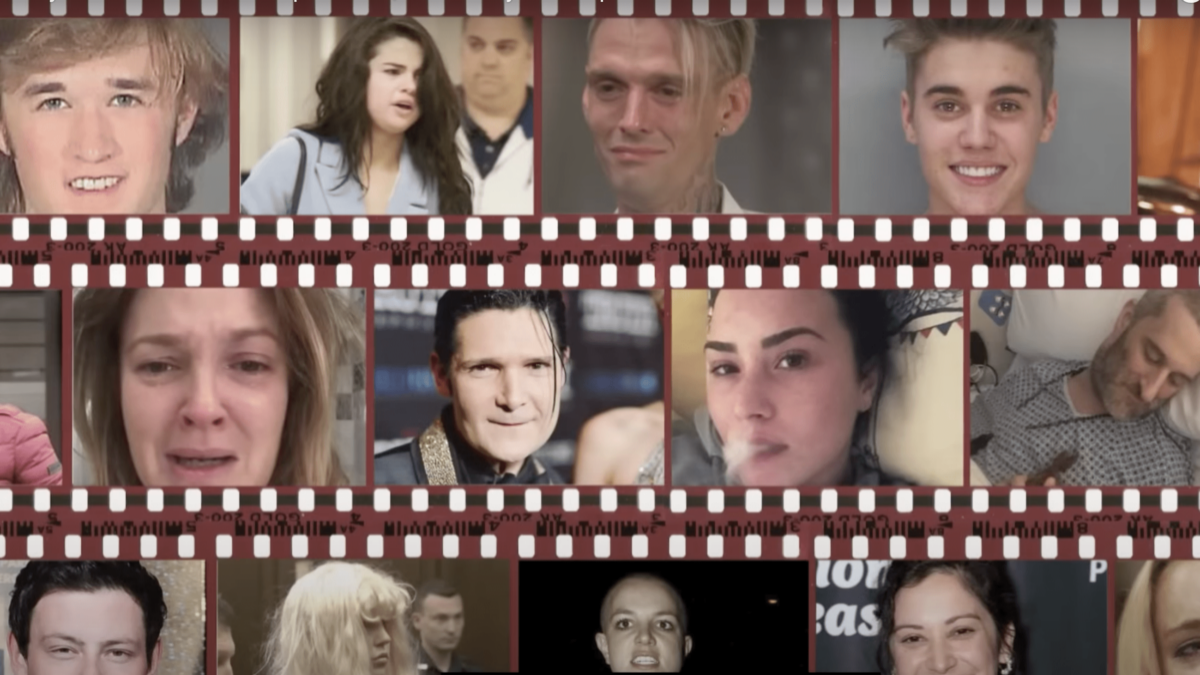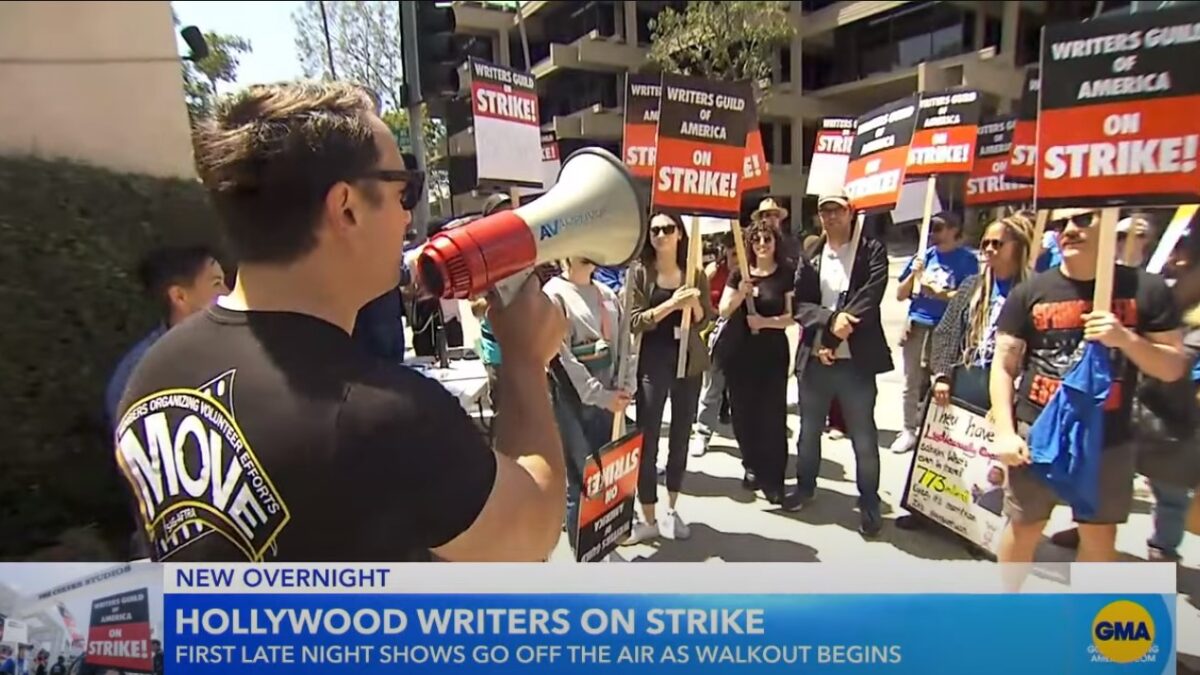A quasi-virtual presentation replete with technological hiccups and flat punchlines, Sunday’s Golden Globes left much to be desired. We saw the inside of Aaron Sorkin’s house. Mark Ruffalo lamented the death of Mother Earth. Jodie Foster accepted an award with her dog. It was not worth your time.
The Globes replaced its audience of drunken celebrity revelers with masked first responders and essential workers, gathered in New York City and Los Angeles where Amy Poehler and Tina Fey helmed the broadcast from different coasts. With nearly all of the nominees appearing virtually, this year’s show was always going to be an asterisk. Even so, the technical trouble was surprisingly constant.
What should have been an opportunity for the Globes to experiment with their format was instead a clunky attempt to proceed with business as usual, filling three long hours with webcam content. One year into the pandemic and they couldn’t have done better? The show’s transitions to commercials were maddening, capturing confused Zoom conversations between nominees.
There’s some intrigue to seeing celebrities at home, like Nicole Kidman watching on a couch with Keith Urban and their daughter or Al Pacino totally checked out. But that only goes so far.
Norman Lear and Jane Fonda accepted lifetime achievement awards. Chloé Zhao rightfully claimed Best Director for “Nomadland.” Chadwick Boseman’s wife tearfully accepted his posthumous award for Best Actor. Tracy Morgan mispronounced words. The Globes had flashes of excitement and emotion.
Yet COVID can’t really be blamed for the lackluster broadcast, which tellingly crowned the lackluster “Borat” sequel Best Comedy. Like the Globes, Hollywood is struggling to adapt to pandemic changes and shifting technologies. Worse, however, it’s also struggling to be entertaining at all.
Poehler and Fey are Exhibit A. We know they’re capable hosts. Talent and chemistry aren’t their problems. But the pair’s act on Sunday ranged from disappointingly dull to outright cringey.
The writing was lame and awkward. Their obligatory jabs at the much-maligned Hollywood Foreign Press Association were hardly edgy. It reminded me of the 2019 Globes, during which Andy Samberg and Sandra Oh previewed the bleak future of politically correct comedy—safe, vaguely woke, gently self-deprecating humor with little power to provoke or entertain.
In fairness, Poehler and Fey had the disadvantage of following Ricky Gervais’s legendary 2020 turn hosting the show. His sharp and personal pre-pandemic skewering of Hollywood hypocrisy was both funny and fearless, treating celebrities to a well-earned and well-crafted dose of public shaming—and right before the industry’s cozy relationship with China got even grosser. In his shadow, Poehler and Fey’s neutered routine felt like it belonged in a cruise ship talent show.
Again, the Globes faced historically difficult circumstances. Beyond COVID, Hollywood is understandably adjusting to the shifting entertainment landscape. Just two years ago, “Roma’s” award-season romp was controversial when Sunday’s show reflected the streaming-era boundary-blurring between movies and television. “TV is the one that I watch five hours straight, but a movie is the one that I don’t turn on because it’s two hours,” Poehler quipped.
Yet it’s hard to imagine Zoom stopping Gervais from kicking the Globes up a notch. What’s deflating our entertainment isn’t the pandemic, it’s the declining allure of free thought in Hollywood. The vaccine can’t fix that.









